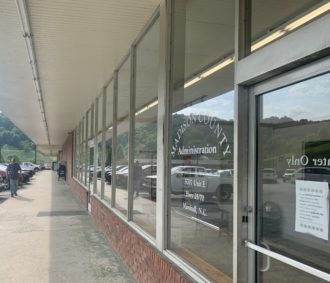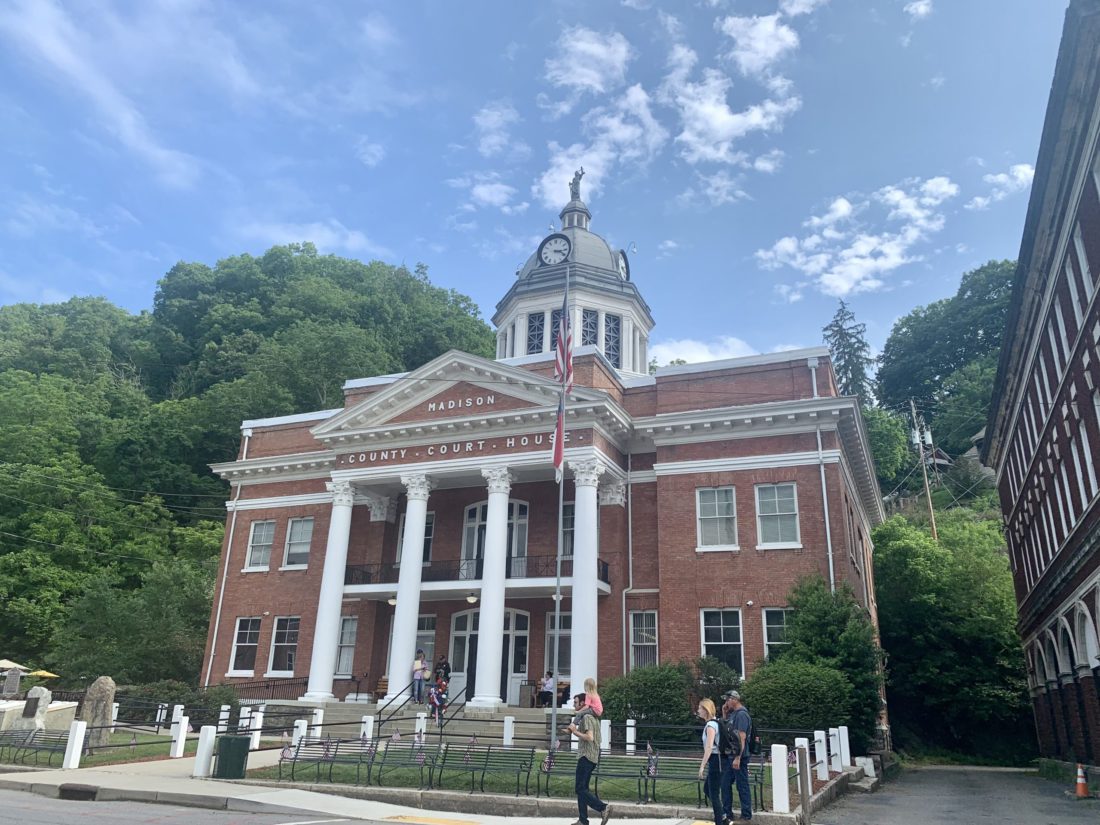By Shelby Harris, originally published by Carolina Public Press. Carolina Public Press is an independent, in-depth and investigative nonprofit news service for North Carolina.
If you ask local government officials what their reaction was immediately after finding out their communities were slated to receive millions in American Rescue Plan Act funds, many will say they were instantly overwhelmed with gratitude.
But for some Western North Carolina counties and cities, that thankfulness was quickly followed by concern — how would these governments decide how to spend the federal COVID relief money, and who would be tasked with ensuring the expenditures aligned with U.S. Treasury Department guidelines?
“We simply did not have the internal staff,” Madison County Commissioner and interim County Manager Norris Gentry told Carolina Public Press in February.
Madison County’s Finance Department has only one employee to handle all of the county’s accounting needs. Asking one person to continue to do the everyday job and handle more than $4 million in ARPA funds was too much to ask, Gentry said.
So the county opted to join the ranks of neighboring Buncombe County and hire someone to focus solely on the COVID recovery money.
Ross Young, who served as Madison County Cooperative Extension director for more than 30 years before retiring in January, stepped in as ARPA manager in early February.
Making a plan
When Young started, Madison was one of only four counties in Western North Carolina that did not have a set plan for their ARPA dollars. With the federal Treasury Department requiring all ARPA money to be allocated by December 2024 and spent by December 2026, time to establish definitive plans was dwindling.
However, all signs now point to Madison County meeting that deadline.
Since Young’s start, the county has moved all of its ARPA funds into its operating budget by claiming revenue loss.

Revenue loss is one of the Treasury Department’s acceptable uses of ARPA money. Regardless of whether a community actually saw a dip in revenue due to the pandemic, the governments are still able to claim revenue loss and use as much as $10 million ARPA funds on essentially anything.
That’s what Madison County commissioners, per Young’s recommendation, opted to do in April.
“That allows counties to basically spend the money in a manner the state government allows them to spend money on,” Young said.
“It doesn’t pigeonhole them into those categories,” he said, referencing the federal government’s other approved buckets for ARPA money — public health initiatives, premium pay and infrastructure improvement.
With ARPA funds moved into Madison County’s budget, it will now free up money for staff salaries and to-be-determined capital projects, he said.
While moving all of the federal funds into the county budget seems as if it would make Young’s job simpler, it hasn’t. In fact, he said, in some ways, it creates more work — mostly because Madison County officials want to use ARPA to expand broadband.
Using ARPA to expand broadband
Broadband expansion in North Carolina is mostly done through the Growing Rural Economies with Access to Technology, or GREAT, program in which the state works with internet providers to expand broadband access. Local governments match what the state invests in the GREAT grant.
If a county decided to use some of its ARPA funds to match the state’s portion of the GREAT grant, Young explained, its application would be more likely to be approved.
“If you send a letter stating that (the match) is going to come directly from ARPA, you can get extra points,” he said, referring to the state’s GREAT grant application grading scale.
Having more GREAT grant money to expand broadband is a point of interest for Madison County, where census data shows 72.4% of residents have a broadband internet connection — significantly less than the state’s 83.4% average.
“The grants that have been awarded — other grants not connected to this — over the years have been to reach the far outstretched parts of rural counties,” Young said.
“What’s left is the people close to town that weren’t close enough. The outskirts of the county have some internet, but those a few miles outside of town are still living in 1991.”
Using ARPA for broadband complicates Young’s job, which seemed cut and dry with the revenue loss claim. In order for the federal money to be allocated toward broadband, it can’t be in the revenue loss bucket. It has to be its own line item.
So, Young said, if Madison County does decide to use its ARPA dollars to match the state’s grant, officials will have to move around the funds previously put into the county’s budget.
“If we didn’t have this piece of broadband connected to the GREAT grant, then I could basically resign this time next year and be on call for an audit if needed,” Young said.
Difficulties with ARPA and broadband
Several WNC counties have opted to use ARPA for broadband expansion, and most have reported the process of doing so as tricky.
Haywood County officials, for example, planned to use the federal funds for broadband initiatives shortly after receiving their first batch of ARPA money last summer. Haywood County Manager Bryant Morehead said the county put away $257,000 for broadband early on.
But Haywood changed course earlier this year after finding out that if the county used ARPA to match the GREAT grant during the 2021-22 application cycle, it was unable to use the COVID relief money for the initiative in the 2022-23 cycle.
“While we had put the money up, we hadn’t actually spent it, so we pulled that money back and backfilled (the GREAT grant match) with regular county local tax dollars,” Morehead said, adding that the county plans to use ARPA for a GREAT grant match during this 2022-23 cycle.
“We didn’t want to go on a smaller scale and not be able to expand broadband as much.”
Buncombe County has experienced a different roadblock with broadband and ARPA, according to Tim Love, the county’s director of economic development, as Buncombe is allotting a significant portion of its ARPA money to not only expand broadband but improve it.
“The majority of the country is served because they can get something,” Love said.
The Federal Communications Commission defines a household as “served” by broadband if it has connection of 25 megabits per second for download and 3 Mpbs for upload — about enough for one device to stream a show.
Buncombe County will use $4 million in ARPA to expand access to what Love described as acceptable internet — 100 Mbps by 20 Mbps, or enough for multiple devices to access the internet at the same time.
“Our point is you can use 25/3 if you want to, but in reality, that’s not good enough,” Love said.




Before you comment
The comments section is here to provide a platform for civil dialogue on the issues we face together as a local community. Xpress is committed to offering this platform for all voices, but when the tone of the discussion gets nasty or strays off topic, we believe many people choose not to participate. Xpress editors are determined to moderate comments to ensure a constructive interchange is maintained. All comments judged not to be in keeping with the spirit of civil discourse will be removed and repeat violators will be banned. See here for our terms of service. Thank you for being part of this effort to promote respectful discussion.